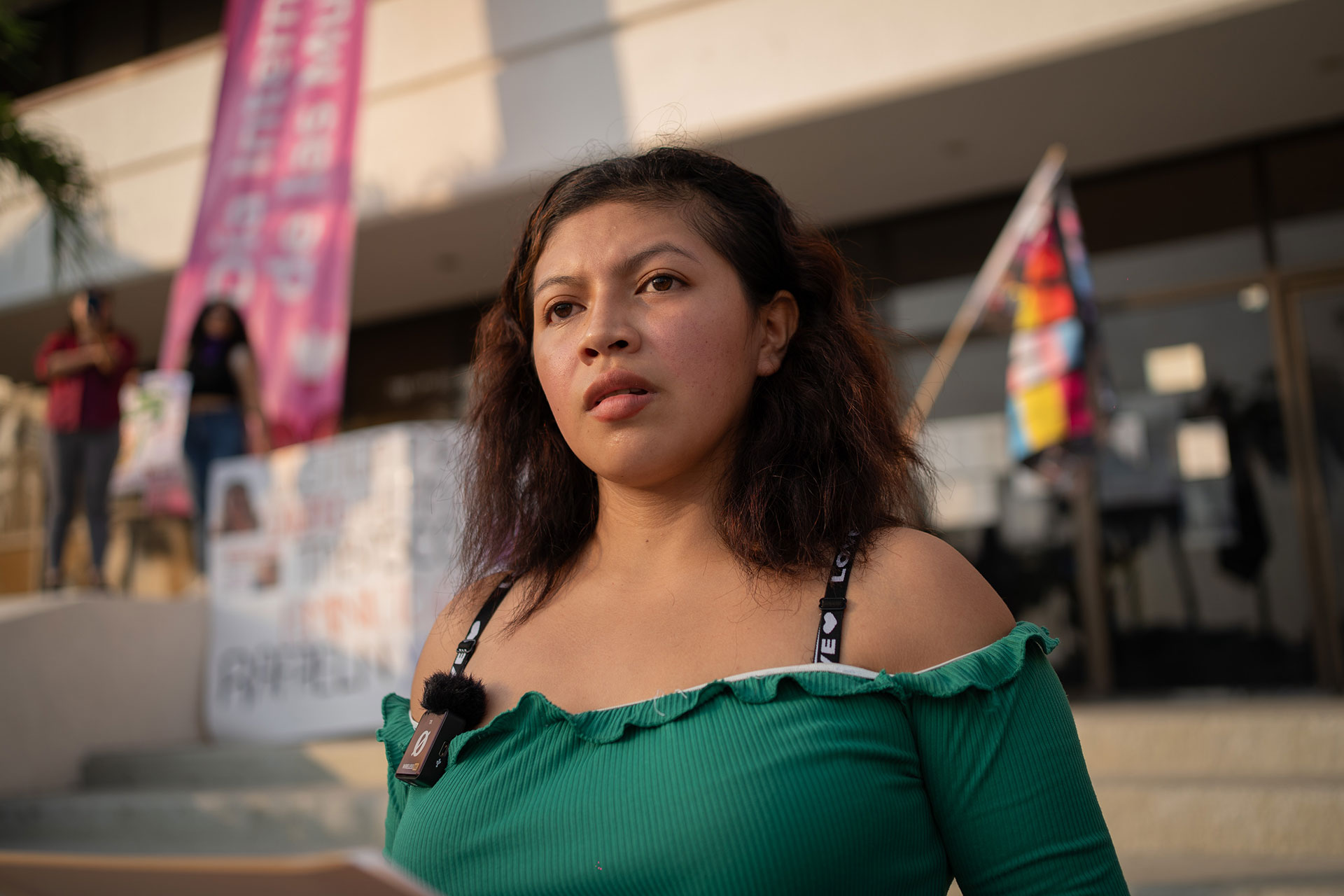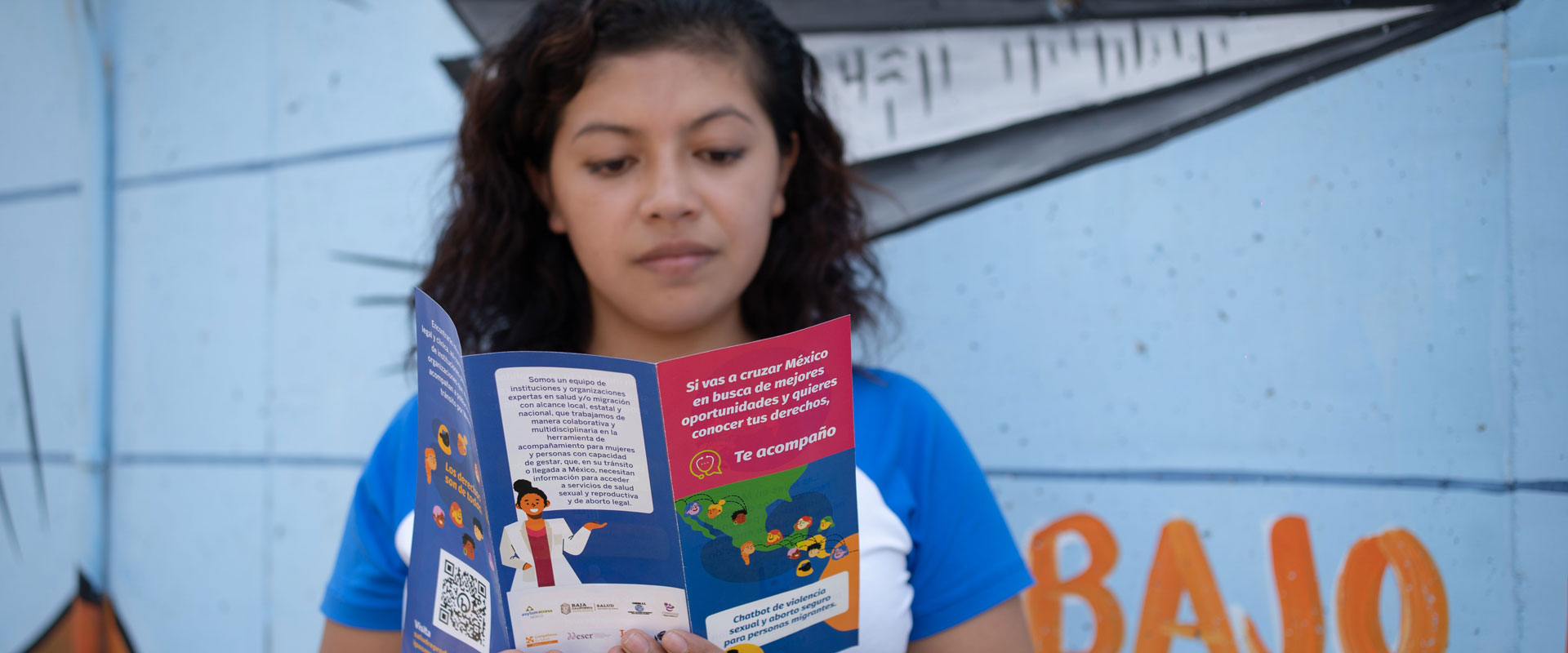Elizabeth Martínez fled from her home in Honduras because of her violent father. The mother of two knew that leaving was her only option.
“My family and I left home because we were experiencing all types of abuse from our own father. When my daughter was born, I said: Enough, this is not possible. I will not allow my daughter and son to go through the same thing that I have experienced because they are children who are just starting their lives,” she explains.
Martínez headed north with her children, eventually crossing into Mexico and arriving in Tapachula—a city in southern Mexico inundated by migrants in recent years.
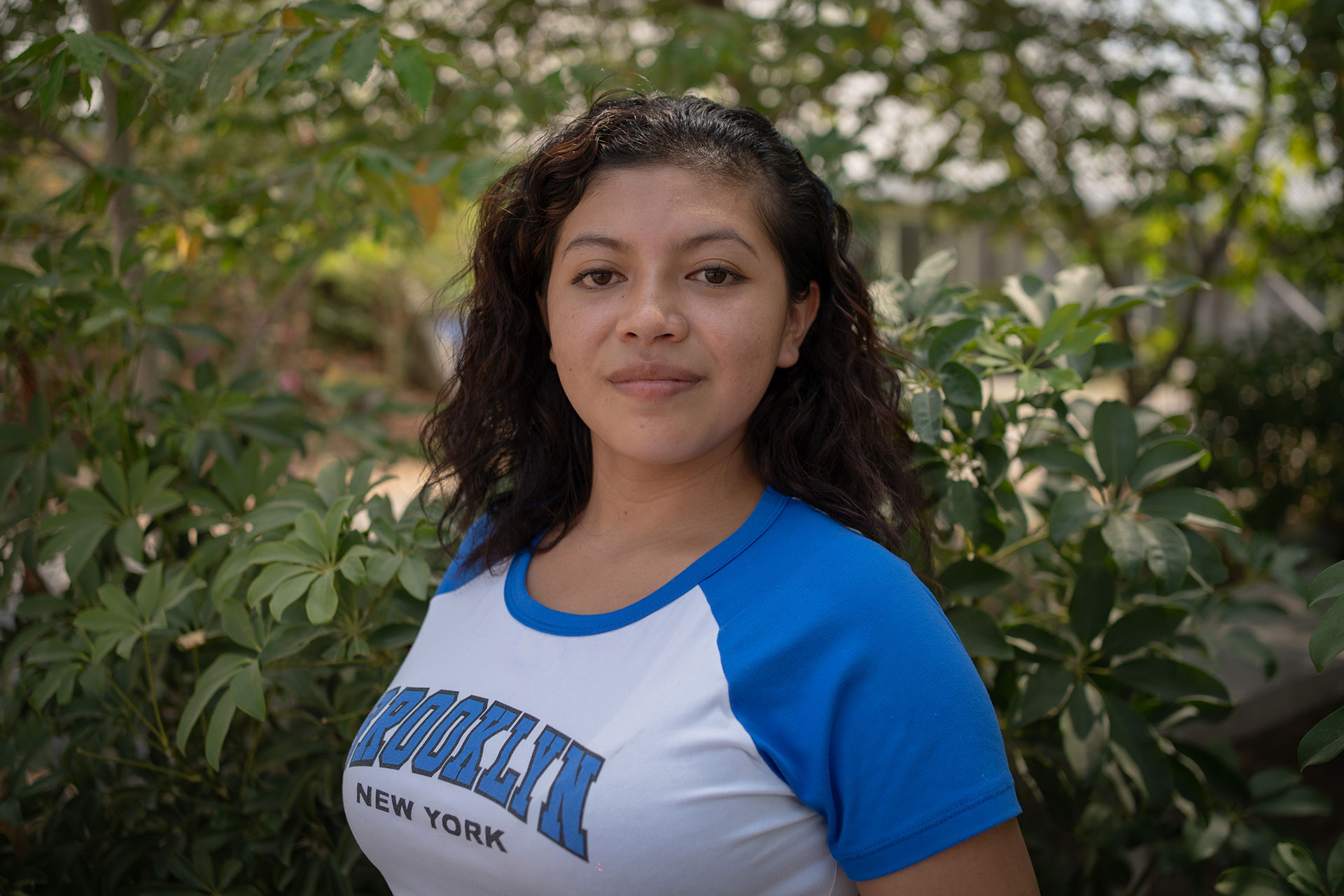
Photography by Victoria Razo for Ipas
A common story with a consistent theme: Violence
Sadly, Martínez’s story is not unique. Countless women have similar stories of fleeing violence and threats from family members and gangs. Each year, an estimated 25 million people—half of them women—migrate across Latin America. Many arrive at Mexico’s southern border, including 45,000 women, mostly from Central America.
These women not only flee violence, but then face high rates of sexual and gender-based violence during their migration journey. Without local knowledge or connections, they struggle to find essential reproductive health care like contraception, emergency contraception, abortion and treatment for sexually transmitted infections.
- Mexico
- Ipas's work with migrants
- Central America
“We face men who want to abuse us, men who treat us poorly, who want to beat us just because we are women, because they see us as sexual objects,” says Martínez.
Ipas’s community-based partners also report high levels of misinformation among migrants about how to access reproductive health care—including a widespread (and incorrect) belief that migrants who seek health services in Mexico will be reported to authorities and deported.
A chatbot designed by migrants, for migrants
To address these various challenges, Ipas Latin America and the Caribbean partnered with federal, state, and local organizations and institutions to create “Te Acompaño,” the first Spanish-language chatbot designed especially for migrants. This innovative web-based platform aims to expand access to information, services and support for migrants seeking abortion and other sexual and reproductive health care along the main migration routes in Mexico.
Te Acompaño, which means “I accompany you” in Spanish, was developed with direct input from migrants themselves, as well as from a broad network of civil society organizations, government institutions and international entities that work with migrants.
“I feel very reassured and heard when I use Te Acompaño,” says Martínez. “It reassures us that, as women, we’re free and fully entitled to choose what to do with our own bodies and to feel protected. The tools also are useful for having a safe abortion and making sure that our health is not at risk,” she says.
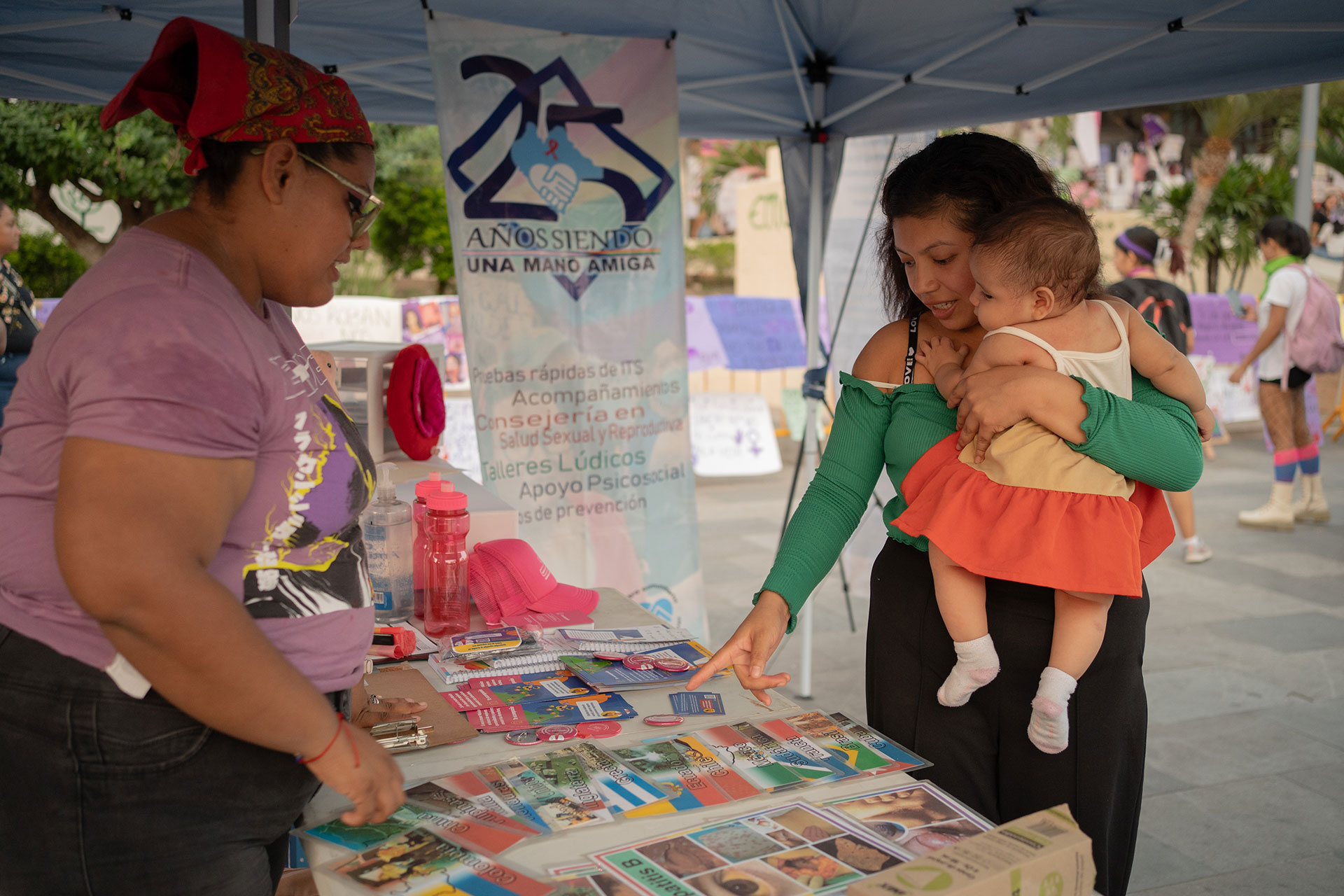
One online chat, countless resources and connections
Te Acompaño uses artificial intelligence to deliver personalized, on-demand information 24/7 through a chatbot that provides users with a conversational experience. Migrants can access the chatbot for free via mobile phone or computer, with their privacy and anonymity always maintained. Key offerings include:
- Comprehensive information on sexual and reproductive health and how to access services in Mexico—including a wide range of relevant health resources like guides and videos.
- Health service directories and interactive maps to help migrants locate facilities that provide sexual and reproductive health care, local groups that offer support in accessing services, and facilities and pharmacies that sell abortion pills.
- Legal information and education on migrant rights in Mexico, so users can feel confident seeking the health care they need.
- Connection with support organizations so migrants can easily contact community groups (like shelters and refugee services) and government institutions that defend migrant rights.
“It’s a very good, user-friendly, automated tool where they listen to you and where you are free to express yourself—and they will provide you with the care you require and deserve at that time,” Martínez says.

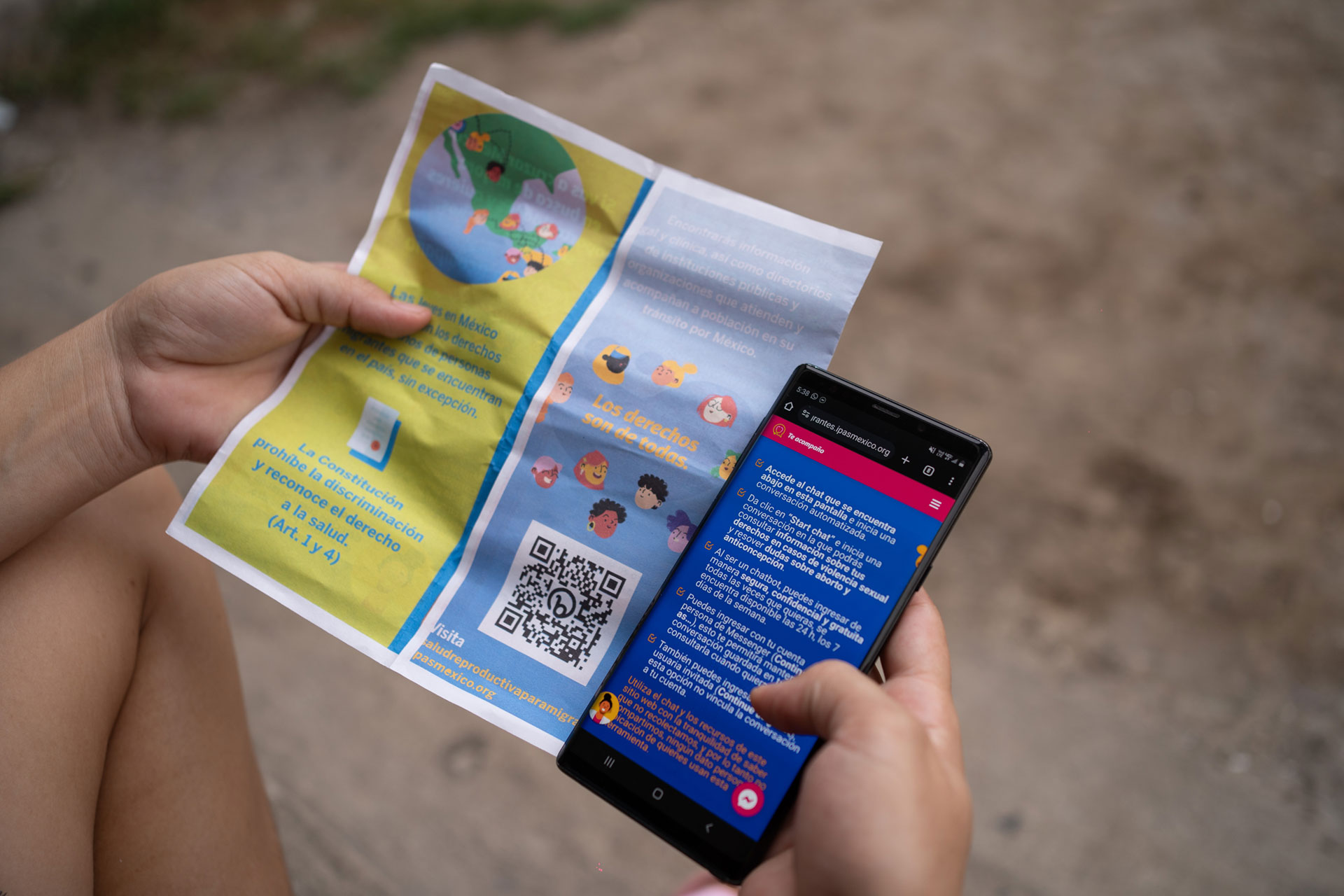

Promotional murals and brochures help migrants learn about the Te Acompaño chatbot and the types of resources and information it offers.
Thousands find needed information—and some find abortion care too
Since launching in Sept. 2023, the chatbot has recorded 9,712 interactions, including 5,841 clicks on referral resources like a map of where to buy abortion pills, a directory of organizations that provide abortion accompaniment (support for people self-managing an abortion with pills), and public services for addressing violence.
*This data updated September 2024.
chatbot interactions
clicks on referral resources
The significant impact of Te Acompaño has been its role in helping migrants access abortion care. Although we’re unable to directly track the number of migrants who successfully obtain abortions via use of the chatbot, a survey of our partners who helped design Te Acompaño found that more than half of these organizations were aware of chatbot users successfully accessing abortion care. Two thirds reported knowledge of between 1-10 cases, while one third reported knowing of more than 20 cases since the chatbot launched.
The lifechanging power of bodily autonomy
María Teresa Hernández Bocanegra, head of the Department of Violence Prevention and Gender Equity within Tabasco State’s Ministry of Health, says the chatbot has enabled migrant women to know what to do and where to go in cases of rape and if they want to access abortion care.
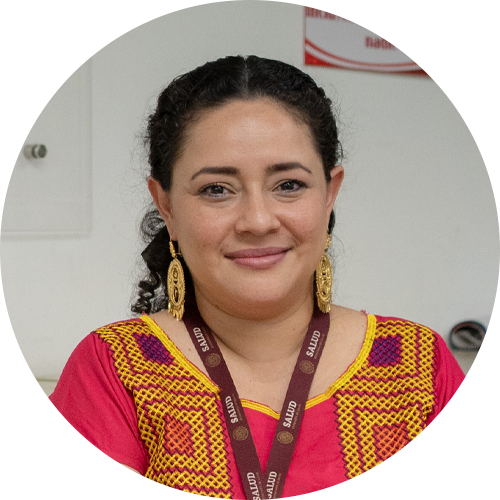
“I think it is especially useful because along the way they also share this information with those who are from other countries … I heard a woman from Ecuador saying ‘no, this is not legalized in my country, but you are now in Mexico—safe abortion in Mexico is legal and these are your rights,’” says Bocanegra.
For Martínez, who dreams of building a better life for herself and her children, Te Acompaño has empowered her to make informed decisions about her own body and reproductive health. She’s even felt inspired to participate in protests and marches for women’s rights, helping pass along life-changing health and rights information to other migrants like her.
“I do not want my children or my sister to repeat my story, and I know that one day I will feel proud for having rescued them,” Martínez says. “We are women and not slaves to pain. That is my motto, that we can move forward after so many difficulties.”
